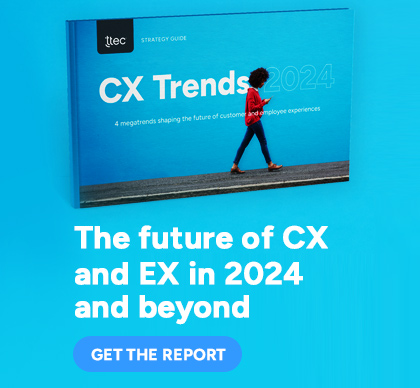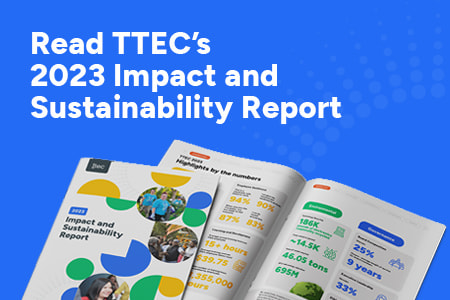At the heart of any successful growth strategy is a transformational leader. John Moser is that person at Denihan Hospitality Group, a development company that manages a portfolio of boutique luxury hotels, including Affinia, The James, The Surrey, and The Benjamin. In his role as CMO, Moser leads the firm's customer engagement and marketing practices.
Over the past year Moser helped to implement the organization's first loyalty program, motivated frontline staff to actively gather customer feedback, and elevated the company's service standards across the brands.
In June the company's owners announced an aggressive growth strategy that includes plans to open five more properties in Manhattan over the next year, as well as expand to new markets. Moser believes the company's future success depends on finding innovative ways to keep customers loyal. Ultimately, both success and loyalty will be based on having rich, real-time customer insights.
Here, Moser describes his efforts to help build a data-driven enterprise that fosters loyalty and stimulates growth.
Customer Strategist: Denihan operates a data-driven enterprise, where everyone in the organization, from bellmen to the front-desk personnel, is responsible for collecting and using customer insight. Would you describe how you empower employees to listen to customers, engage with them across touchpoints, and share feedback?
John Moser: It's pretty simple. We start by letting associates know about Denihan's dedication to exemplary service at meetings and by continually communicating that message. We ensure that front-of-the-house and back-of-the-house staffs are aligned with our customer strategy, and we challenge associates to own customer service and to see every guest as an individual. Our general managers know that our guests are our best salespeople, [so] they reinforce the idea that every guest interaction can make a difference.
The Denihan service model also relies on two key elements: "empower" and "share." So, we also ask our associates to talk about their favorite brands. I ask our staff to describe the brands they love and why they feel the way they do about those brands. It gets people to think about the emotional connection and how we can bring those ideas to life in our hotels, and about how we can exceed expectations at all touchpoints and make every interaction unique. It's a big goal, but we are getting closer every day.
CS: Describe the process for integrating the customer insight collected from across all your properties.
JM: We make sure the voice of the customer is involved in every major decision we make regarding the customer experience. With technology today, finding out what people are saying is not difficult. The real work is in sifting through the vast amount of information out there and homing in on the things that we can change. We also target the gaps in guest behavior so that we can market to guests and prospects in a more focused way. Our outstanding business intelligence team is able to help us answer the "what ifs" of our business.
CS: Can you provide examples of how you leverage the combined insights to improve the customer experience?
JM: From some of the feedback we recently received, we knew that it was time to change our bathroom amenities at Affinia. Before we made any changes we identified brand advocates at check-in and asked them if they would participate in a search for a new bathroom toiletry [brand]. They tried different options during their stay and overwhelmingly selected our current product line: Philosophy. They loved being included in the process and, not surprisingly, our guests loved their selection. Because of our success in leveraging brand advocates, we plan to establish an online advisory council in the first quarter of 2012.
CS: Denihan Hospitality Group recently was the only hotel group with two properties topping Travelocity's "Top 10 Hotels in New York City" list, compiled from thousands of traveler reviews. What aspects of your customer strategy do you attribute to this rating?
JM: We spend a lot of time responding to and interpreting our guest feedback to improve our service. Over the past year we have embraced Net Promoter Score (NPS) and the question at its nucleus: "How likely are you to recommend our product?" We have found this focus to be a very good way to align operations and marketing.
CS: You also actively listen to customers on third-party sites and analyze their comments. How does that practice help Denihan gain a more holistic view of its customers?
JM: The beauty of a third party is the free-form nature of reviews. Surveys are still important, but reviews tell us about the last impression of a guest and what they took away from their stay. We mine those conversations to find out their true impressions about our brand. We need to focus on their impressions as being reality and then build on the good and eliminate the bad.
CS: Can you offer an example of how, by analyzing comments on third-party sites, you discovered an opportunity or trend within your business?
JM: We relied on comments from customers to help us decide to join [the coalition loyalty program] Stash Hotel Rewards. Every year we ask our customers, "When you don't stay at Denihan why did you choose another hotel?" Ten years ago when we asked our customers why they chose other hotels, their first and second reasons were price and location. Loyalty programs were 10th on the list. In 2009 loyalty points jumped to 3rd. At that point, we still did not have a loyalty program, but we clearly knew that it was time for us to address this growing need for us to have one.
CS: What is your member segmentation strategy with Stash Hotel Rewards?
JM: As with all loyalty programs, Stash rewards the frequent traveler segment. Most of this segment has been attached to the big hotel chains due to their focus on loyalty programs. But as information increases online, these customers have been able to find new and unique lodging experiences they can trust. These travelers are interested in making their business travel more diverse by staying at boutique properties. But they don't want to give up the rewards that all road warriors love: loyalty points. Now this segment can stay in our unique properties when they travel on business and they can burn their points at great independent leisure destinations.
CS: How do you plan to continue to evolve your data-driven organization?
JM: Mobile technology will open up a whole new opportunity for customer data and service delivery. I am really excited about that. And, we will continue to explore our NPS programs to find new promoters and engage them in helping us evolve our brands.






